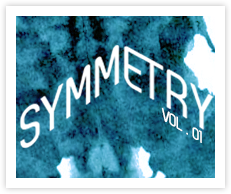

The Real World
Adam Sterling // April 12, 2013

At times, it feels like my Facebook feed is a virtual Pride Parade. Being social and gay in a relatively small city with an even smaller LGBT community means this is practically inevitable.
Every now and again, one of the more outspoken Pride Marchers shares a news story about a horrendous hate crime committed by a fundamentalist Christian, usually with some sort of comment like, “What is wrong with Christians?” Within minutes, the post will be littered with supportive comments, but there is almost always one comment that goes something like this: “Those people aren’t real Christians.”
This has always struck me as disingenuous. After all, the people who committed this crime oftentimes describe themselves as devout, churchgoing Christians. They read the Bible. Sometimes they even tattoo scripture onto their chests, like they need a really obvious reminder. But then they also set fire to a gay couple’s home or beat the snot out of a woman with a buzz cut.
Now, admittedly, I lean quite heavily on the atheist side of agnosticism. But to me, committing these crimes doesn’t mean these people are no longer “real” Christians. It just means that Christianity is home to some very evil people. And that’s okay.
Well, it’s okay insofar as it’s okay that this entire planet is home to some very evil people. Christianity is also home to some very loving people who would never dream of committing acts of hatred against another person. But, yes, Christianity has evil in it, because it is ultimately a construct of humanity. And let’s face it, there has never been a better manifestation of imperfection than humanity. For all its light, Christianity has shadows.
So, too, does public relations.
Of course, we know this. In classes, we’ve been shown how Joseph Goebbels used black propaganda to convince an entire generation to devote themselves to the Third Reich. But we’ve been told, “that’s not us.” After all, people like Goebbels and Edward Bernays did not strive for the all-important two-way symmetrical communication. That’s what we do, as enlightened public relations professionals.
It has become a cliché at this point to note that the public relations industry is in desperate need of a really good public relations team. But, quite frankly, it’s true. Despite being an integral part of practically all organizations, we have a bad reputation and, oftentimes, the general public is more than happy to speak out against the evils of PR.
This kind of distrust and dislike seems to spark a sort of cognitive dissonance in public relations practitioners. When we see our friends mock a corporate spokesperson for trying to skirt around a controversial topic, we become those well-intentioned Christians: “Well, that’s not real public relations.”
Yes, actually, it is. It might be poorly executed public relations and it might go against everything you believe as a practitioner. But it’s part of our industry and we need to own that. There’s a danger in pretending that a certain brand of PR isn’t “real” PR: when you’re asked to defend a company that doesn’t deserve it, you won’t realize that you have become that spokesperson your friends mock. After all, you’re a “real” public relations practitioner.
When crisis strikes our clients, we tell them to look to their mission and their values – these will help steer them through and they will emerge better for it. What we forget is that we need to follow this advice, too. Crises are not just for businesses. We will find ourselves in the midst of personal and professional crises time and again.
One of the most valuable and undervalued courses in the Bachelor of Public Relations program is Wade Kenney’s Ethics and Public Relations. Throughout the course, I heard complaints from my fellow classmates that Wade was too focused on philosophy and wasn’t providing practical, industry-specific advice. If you’ll forgive my bluntness: these classmates were missing the point.
Yes, there are certain things public relations practitioners should know that would logically fall under the umbrella of “ethics.” For the most part, however, these seem to be more about legal issues than ethics. After all, industries don’t have ethics, people do. People just happen to work in industries.
In order to operate ethically in our industry, we need that philosophical foundation. We need to be prompted to think about our values and what we want to stand for as people, not just public relations practitioners.
This doesn’t eradicate our industry’s shadows. After all, despite how much we wish it weren’t so, not all beliefs are created equal. But, at the very least, having values is how you find work you value. It’s how you confidently speak to the media and act as the first line of defense for a company that you feel truly deserves to be defended.
It’s how you can begin to define “real” public relations for yourself.
